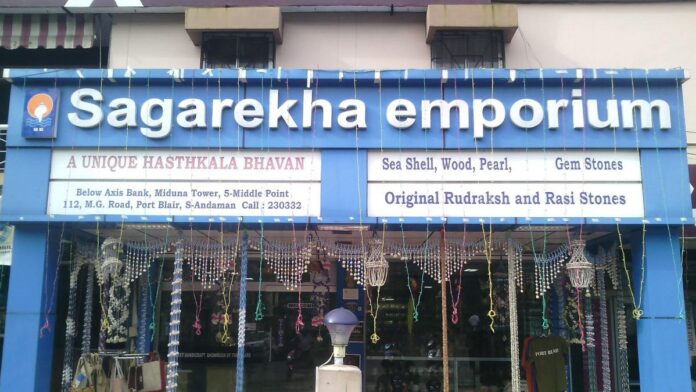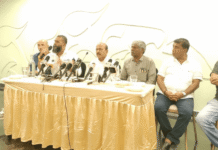The inauguration of the Sagarika Emporium and Tourist-cum-Information Centre in Chennai has been welcomed as a milestone initiative for the Andaman & Nicobar Islands, with the Nicobar Youth Association hailing it as a symbol of hope, opportunity, and pride for tribal artisans and communities.
In a statement issued on August 25, 2025, Rayhaan Pasha, President of the Nicobar Youth Association, expressed deep admiration and gratitude to Dr. Chandra Bhushan Kumar, Chief Secretary of the Andaman & Nicobar Administration, for leading the effort. According to Pasha, the establishment of the Chennai emporium represents more than just a cultural showcase. “It is a historic step towards connecting our artisans and tribal community with the wider world,” he said.
The Sagarika Emporium has long been regarded as a premier outlet for authentic island handicrafts, tribal art, and traditional products, giving artisans a platform to sell their work directly to buyers. By opening a branch in Chennai, one of India’s major metropolitan cities, the Administration has created an expanded market base that offers island artisans both recognition and sustainable livelihood opportunities.
Pasha stressed that the move will encourage tribal artisans to expand production, now that they have a secure and trusted market through the Andaman & Nicobar Administration. “By bringing the spirit of the Islands to Chennai, the Administration has opened a gateway for tourists, visitors, and buyers to engage directly with our heritage. This is not just commerce, it is cultural preservation,” he noted.
The Nicobar Youth Association also praised the dedicated team of officials in the A&N Administration whose tireless efforts made the project possible. Their commitment, Pasha remarked, “reflects the true spirit of service and devotion to the progress of the Islands.”
Community leaders believe the Chennai outlet is not only a trading hub but also a symbolic bridge linking the islands to mainland India. For artisans in remote areas who often face challenges of limited exposure and restricted markets, the emporium represents a rare chance to access national platforms without leaving behind their cultural identity.
Looking forward, the Nicobar Youth Association suggested expanding the model to other metropolitan cities. “If similar emporiums are established in places like Delhi, Mumbai, Bengaluru, and Kolkata, the unique heritage of our Islands can resonate across India,” Pasha said. According to him, such initiatives would empower tribal craft communities and elevate the Andaman & Nicobar Islands into a cultural and tourism destination of national importance.
The inauguration has been described as a moment of pride for the Nicobarese community, who see their heritage being given visibility on a larger stage. For many artisans, the move is expected to ensure steady incomes, inspire younger generations to take up traditional crafts, and prevent the erosion of indigenous skills.
Observers point out that in addition to providing direct marketing avenues, the emporium can also serve as a tourism promotion centre. Visitors to Chennai will now have the opportunity to explore the islands’ culture and crafts, potentially encouraging them to travel to the Andamans themselves. This could generate a positive cycle of craft promotion and tourism development.
Concluding his remarks, Pasha said the initiative “has lit a path for generations of artisans, tribals, and entrepreneurs, proving that with the right guidance and vision, even the remotest corners of our country can shine on the national stage.”
The Chennai Sagarika Emporium is expected to set the tone for a series of similar efforts in the future, aligning culture, commerce, and tourism in ways that strengthen the identity of the islands and the livelihood of their people.






